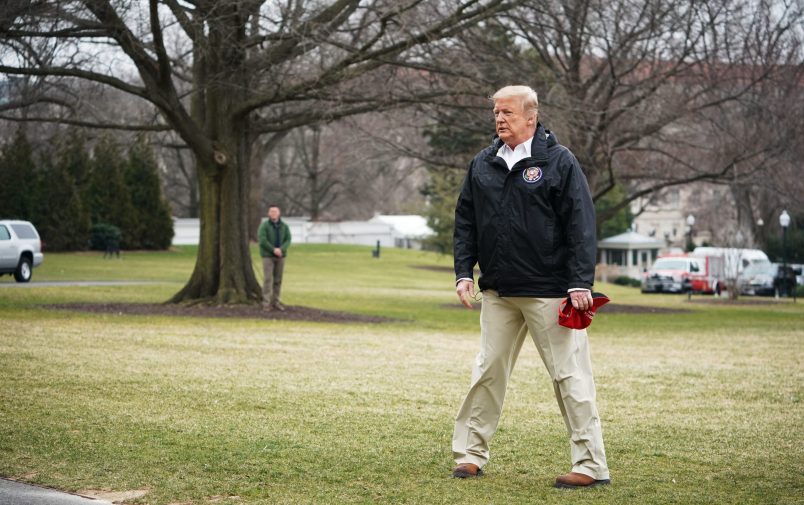The Special Master overseeing Trump’s case asked the former President on Thursday to back up the multiple claims he’s been making that many people have wronged him very badly.
U.S. District Judge Raymond Dearie for the Eastern District of New York ordered Trump to present a list of claims to federal prosecutors about which records he sees as subject to attorney client or executive privilege, which of the seized materials he’s contending were his presidential records, and to state, for the record, whether the FBI planted any evidence at Mar-a-Lago.
Since the FBI executed a search warrant on Mar-a-Lago in August, Trump and his attorneys have returned to their classic strategy of muddying the waters. The FBI planted evidence, some of Trump’s lawyers claimed, while others said that the records may be subject to executive privilege, without specifying which.
Now, Judge Dearie is asking Trump to put up or shut up.
In a Thursday order, Dearie demanded that Trump provide a list of items that the DOJ says were taken from Mar-a-Lago which he believes “were not seized from the Premises on August 8, 2022.” Dearie also wants Trump to identify items on the DOJ’s inventory of what was taken that he contends were incorrectly described by the government, and which may have been taken but were “not listed in the Detailed Property Inventory.”
With all of Trump’s puffery, it’s an attempt from Dearie to treat the former President like any typical plaintiff in a civil case. The burden of proof lies on the plaintiff to prove the claims that he or she makes, as Dearie himself emphasized at a Tuesday hearing in the matter.
Trump requested that Dearie become the special master after U.S. District Judge Aileen Cannon for the Southern District of Florida approved a request from him to appoint one to sift through records that the government seized. The DOJ agreed with Trump’s request.
The former President had also suggested — without formally claiming in court — that he had declassified some of the records. While Dearie was skeptical of that approach at the Tuesday hearing, the Eleventh Circuit’s decision to stay Cannon’s order has mooted that question.
What remains unresolved are Trump’s unsupported claims that some of what was taken belong to him under the doctrine of executive privilege, or that they were presidential records belonging to him. Again, Trump has not claimed that certain specific records are covered by the privilege or the Presidential Records Act — only that they may, in general, apply.
Dearie injected specificity and reality into the situation by forcing Trump, in the order, to say exactly what records those categories may cover.
“Plaintiff’s designations shall be on a document-by-document basis,” Dearie wrote. “For any document that Plaintiff designates as privileged and/or personal, Plaintiff shall include a brief statement explaining the basis for the designation.”
Dearie ordered the parties to finish submitting lists of disputes over the records to him by Oct. 21. He scheduled a telephone conference in the matter for Oct. 6.
Correction: Due to an editing error this post misstated the date by which Dearie ordered Trump and the DOJ to finish submitting their lists of disputes. The parties were ordered to do so by Oct. 21, 2022.



